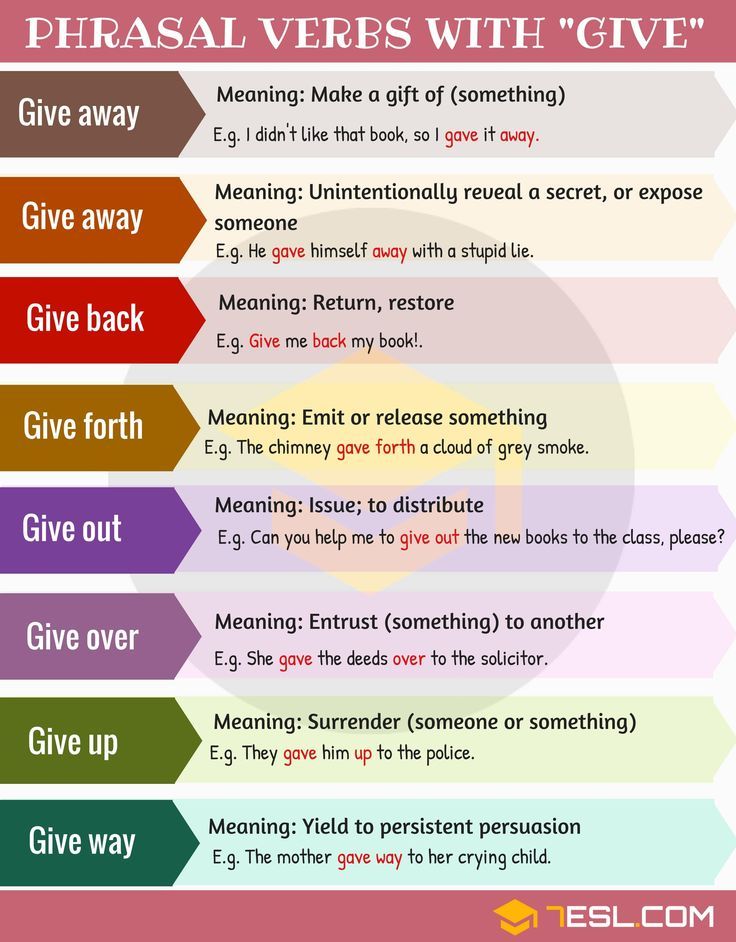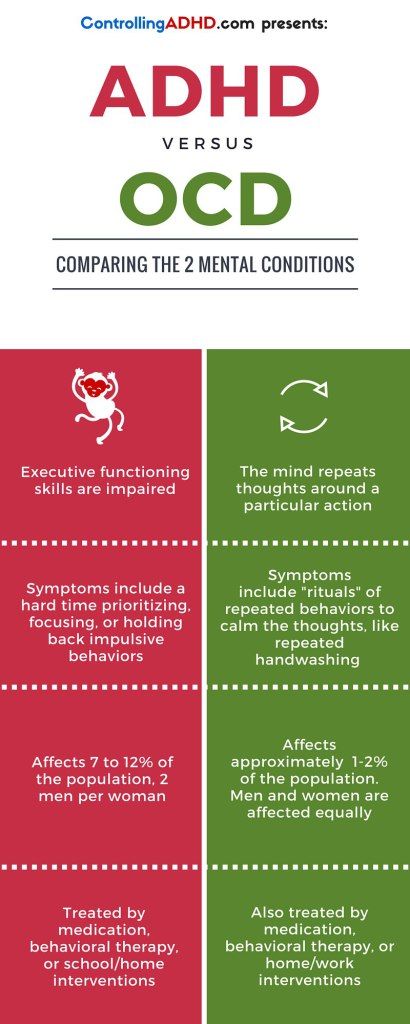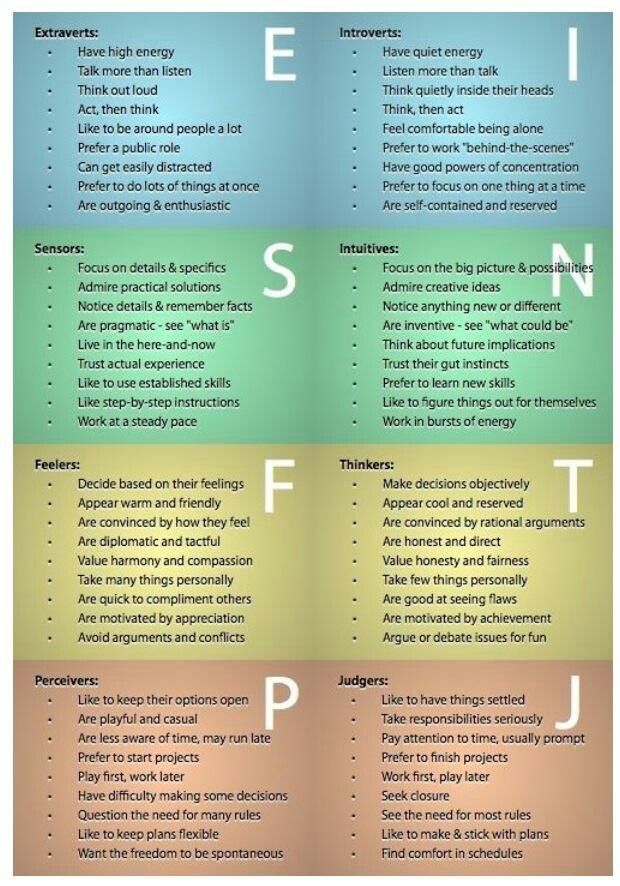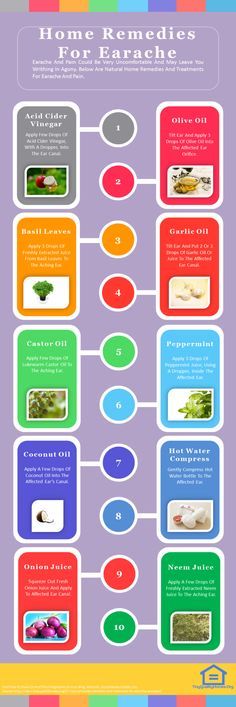Feel lonely even with friends
Why Do I Feel So Alone Even Though I Have Friends?
By: Alessandro Bonvini
You’re surrounded by people and friends, your social media accounts are busy… “so why do I feel so alone even when I have friends?”
7 Reasons You Feel So Alone Even When You Are With People1. You’ve misunderstood what loneliness is.
Loneliness is an emotional state, not a physical state. It can’t be warded off by a high friend count, or by never being by yourself.
Nor can loneliness be solved by telling yourself to ‘just get over it’. Often loneliness stems from things we learned or experienced as children that left us behaving in certain ways. These ways of being can be quite difficult to change, especially if they are connected to childhood trauma.
So first things first, accept that ending your feeling of loneliness is not about booking up your social schedule or getting on another dating site. It’s time to go a bit deeper.
2. You are in need of real connection.
If there was one magic ingredient to not feeling lonely, it would be the ability to connect to others. This is not about being able to appear fascinating, or a capacity to talk about the same subjects that someone else is interested in. In fact these can both be ways to hide from connection.
Connection means being around people we feel open and available to, and are able to bring our real self to and feel safe doing so.
[Sounds confusing? Read more in our article on “Connecting to Others“.]
3. You find it hard to be yourself.
By: Ralf Steinberger
Connection involves being yourself around others. But if you’ve spent your entire life living up to the expectations of your friends and family, you might find it hard to ‘just be yourself’.
You might even not know who ‘yourself’ is.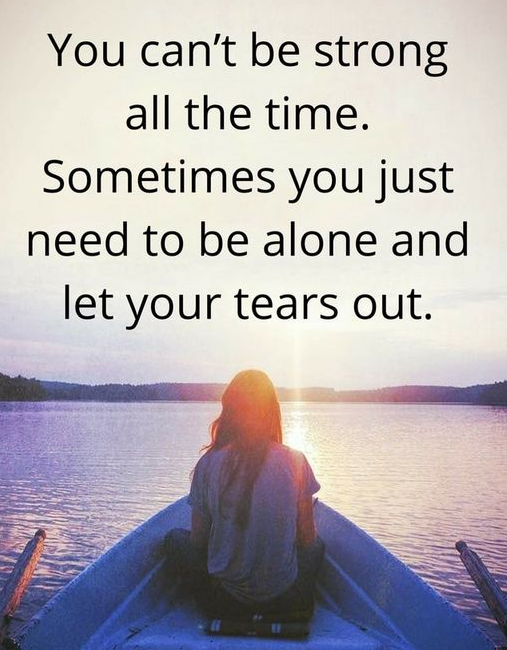
Lack of personal identity is often behind ongoing loneliness. If we can’t pinpoint who we are, then we are left constantly feeling misunderstood. How can others connect to us if we are always shifting our self presentation and leaving them confused?
This can happen if we spent a childhood pleasing a parent so much our true self never had a chance to develop, or if a childhood trauma meant we developed a fake self to hide our emotional pain.
4. Deep down you don’t trust anyone.
Of course if you don’t trust anyone, how can you ever relax and be yourself? This sort of fear of intimacy instead results in having many inner walls and barriers that stop people from reaching you – and leave you trapped inside, lonely.
5. You have borderline personality disorder.
Sometimes our trust was so fractured by experiences as a child we actually can’t maintain relationships, no matter how hard we try.

Are you an intense and fascinating person who attracts partners and friends easily — but the roster changes frequently? Connect with others fast, but have dramatic fallouts often? Have you been told many times that you are too emotional and overreactive?
Borderline personality disorder (BPD) is not only exhausting, it leaves you feeling unbearably misunderstood and alone in the world.
6. Your definition of friendship needs re-assessing.
Sometimes loneliness can simply be down to not understanding the key elements of adult friendship.
Yes, at school, we gravitate towards people because we are on the same sports team, we like the same music. But as adults, independent from the constant support of our family, we need to instead find people with whom we share personal values.
By: joelle L
Personal values are the things that matter most to you about life.
If you lost everything and everyone you had but still had yourself, what would matter to you?
As you can imagine, if you share these core values with someone, it doesn’t matter if your lives are a match on the ever-changing outside when you match on the inside.
Perhaps this is why social media ‘friends’ don’t stop loneliness. Instead, research now shows that social media lead right to rising levels of loneliness. We just aren’t honest enough in the way we present ourselves online, and along with personal values, real friendship is also based on authenticity.
[Suspect your friendship circle needs an upgrade? Read our piece on Toxic Friendships.]
7. You don’t know how to receive.
Do you tend to say no to any offers of help and do everything yourself? Deflect questions about you and insist on talking about other peoples’ problems only? And hide your emotions if you feel sad or down, only calling friends when you feel in a good mood?
Connection is a two-way street.
If you are making friendships all one-way, always giving but never receiving, then you’ll feel depleted instead of loved. At its extreme, this can become a pattern of codependency, where you begin to take your self-worth from helping others and can lose any sense of your own needs.
Sound worryingly familiar?
If you find you have real troubles connecting to others, and you suspect your patterns of relating relate to learnings or experiences from childhood, it is a very good idea to seek the support of a counsellor.
Relating to others is now recognised as so important to our wellbeing there are even forms of therapy that focus just on this crucial element of our lives — read our article “The Types of Therapy That Help You With Relationships” for more.
Harley Therapy connects you with counsellors who can help you form better friendships and relationships so you can finally end the cycle of loneliness. Book an assessment appointment in central London today using our online form. Not in the UK? Skype sessions are now available.
Do you find an answer to ‘why do I feel so alone even when I’m with people’ that we’ve missed? Share with our readers in the public comment box below.
5 Reasons You Feel Lonely Even When You're Not Alone
In theory, the brunch you’re at is going great — you’re surrounded by nice people, good food, hilarious conversation. But you’re still feeling alone, as though you’re a thousand miles away from everyone else emotionally. The tricky thing about feelings is that they're different for everyone: Some people, for example, are perfectly fine having few friends or enjoy spending a great deal of time alone. For other people, those same scenarios would create a deep sense of loneliness and isolation. Figuring out why you feel lonely even when you’re not alone can help you feel more in tune with the people around you — and with yourself.
But you’re still feeling alone, as though you’re a thousand miles away from everyone else emotionally. The tricky thing about feelings is that they're different for everyone: Some people, for example, are perfectly fine having few friends or enjoy spending a great deal of time alone. For other people, those same scenarios would create a deep sense of loneliness and isolation. Figuring out why you feel lonely even when you’re not alone can help you feel more in tune with the people around you — and with yourself.
“Being lonely is a feeling, whereas being alone is tangible and concrete,” says Sherese Ezelle, L.M.H.C., licensed behavioral therapist at One Medical. “When you feel alone you may feel disconnected from others although there are people that are available to you.” By contrast, feeling lonely when you’re around other people can be your body’s response to not getting your needs met, says Ezelle. “Sometimes sitting in a feeling of loneliness can illuminate things you would like to do to feel better. ” Plus, being alone doesn’t necessarily mean feeling lonely — many people feel fulfilled by being alone. Loneliness is not mutually exclusive to being around others.
” Plus, being alone doesn’t necessarily mean feeling lonely — many people feel fulfilled by being alone. Loneliness is not mutually exclusive to being around others.
Loneliness has been on the rise in the United States since 2018, NPR reports. According to a survey released by health insurer Cigna in January 2020, three in five people in the U.S. feel lonely on a regular basis, especially folks who said they didn’t have close friendships that make them feel safe and loved. The events of the last couple of years largely made folks feel even more isolated, with 36% of Americans surveyed feeling lonely pretty much all the time, according to a study released in February 2021 by Harvard Graduate School of Education’s Making Caring Common Project. The same study also found that, while older people often feel more lonely, young adults have been the hardest hit by loneliness throughout lockdowns.
Richard Weissbourd, a psychologist and senior lecturer at the Harvard Graduate School of Education (HGSE) who helped lead the research, said: “I was surprised at the degree of loneliness among young people. If you look at other studies on the elderly, their rates of loneliness are high, but they don’t seem to be as high as they are for young people.” This could be due to many reasons–perhaps younger people are not used to these feelings or experienced sitting with loneliness, so the feelings have come as a shock. Young adults, according to Weissbourd, may be particularly susceptible as they transition from their “inherited families to their chosen families.”
If you look at other studies on the elderly, their rates of loneliness are high, but they don’t seem to be as high as they are for young people.” This could be due to many reasons–perhaps younger people are not used to these feelings or experienced sitting with loneliness, so the feelings have come as a shock. Young adults, according to Weissbourd, may be particularly susceptible as they transition from their “inherited families to their chosen families.”
As we transition back into being around people, the feelings of insecurity, loneliness, and anxiety that have percolated are likely to hang around. That’s all to say — if you’re thinking “Why do I feel so alone?” when you’re at a perfectly pleasant park hang, there are plenty of others in the same boat. And figuring out how to feel less lonely depends partly on why you feel lonely, to begin with. Check-in with yourself to see if any of these five reasons you feel alone resonate with you because the more you know about what’s going on when you’re lonesome, the more you can help yourself feel better.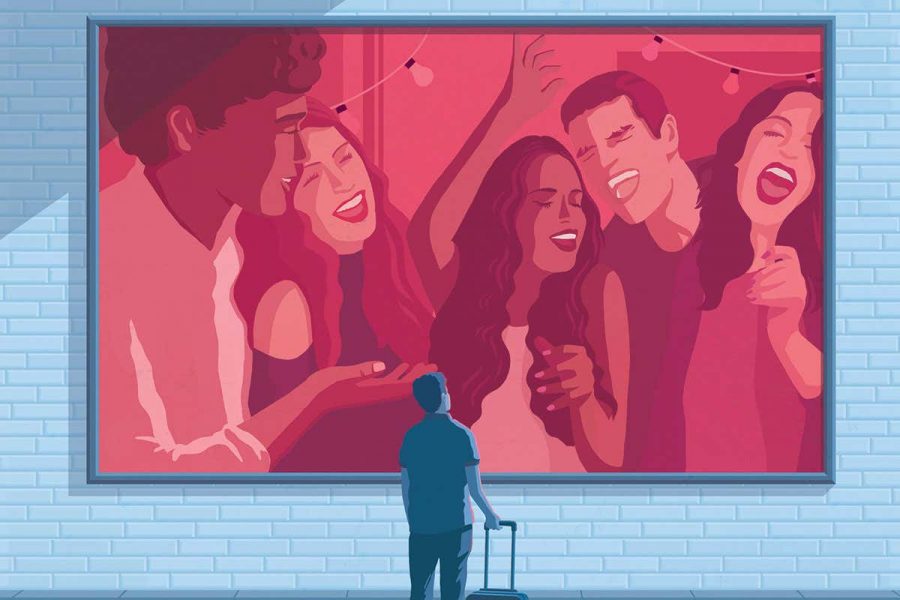
Relationship coach Kira Asatryn tells Bustle that loneliness is a complicated affair: it might actually mean you’re longing for connection, not just more people around you. "If my relationship with someone didn’t have that element of closeness, it tended to make me feel more isolated than just being alone,” she explains. In other words, if something in a friendship or romantic relationship isn’t clicking as you want it to, you might wind up feeling unfulfilled. “The desire to be relatable is what connects us to others and lessens our feelings of loneliness,” Ezelle says. It isn’t always enough to just be around someone if you aren’t connecting authentically. Try focusing on cultivating that closeness with others by setting intentional time to just be together — taking a walk with each other or going for coffee with no phones in sight. Still, it’s important to remember that even if you are open to developing good relationships, you can't expect everyone else to jump onto the same page with you, and not everyone will be open to delving into a closer bond — that’s why maintaining your existing friendships is so key.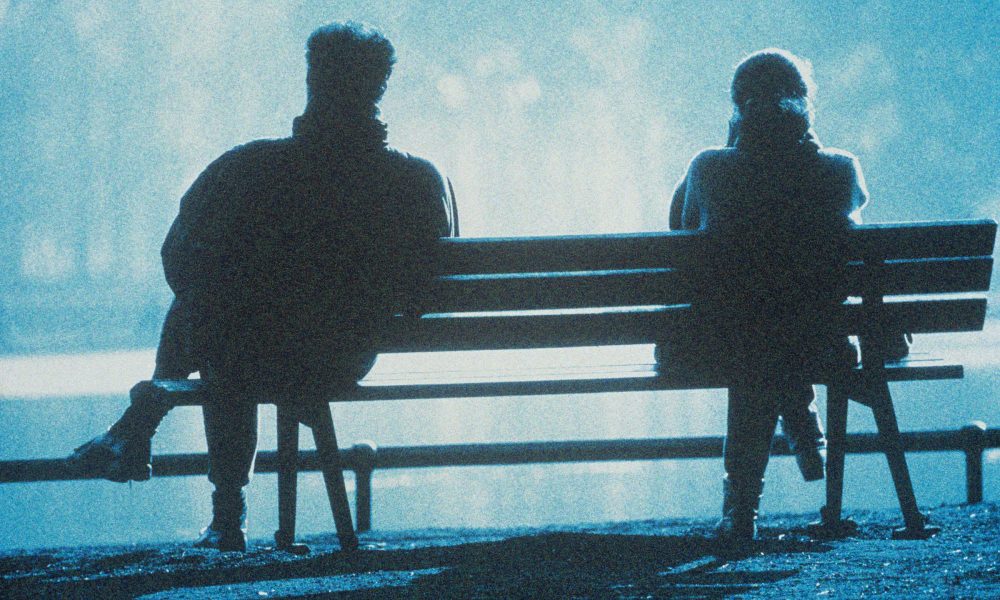
Introverts definitely can get a bad reputation for living in isolation, but that isn’t always the case. In reality, for a lot of introverts, too much socializing can simply be exhausting, especially with big groups of people, strangers, or environments where there's lots of networking. While it can be fun to catch up on a surface level, it doesn't necessarily make you feel closer to those around you. Introverts may need to charge their social battery before they can hang out, and after months of being alone, it might run out faster than ever. Make sure you’re recharging your social meter when you need to — choosing to stay in when you’re feeling down, for example — so that you’re not running your emotional battery low. That way, you might feel less lonely when surrounded by people, as you feel prepared to be around them.
You Need More Quality Relationships, Not A Higher Quantity Of ThemYou can, theoretically, have a million friends, but if you don't invest time and energy into them, it's likely you'll continue feeling lonely. “We are given an opportunity to build trusting and lasting relationships when quality is the focus,” Ezelle says. “In order to truly feel connected to someone in a relationship you want to be able to be your most genuine self.” And, naturally, you probably can’t give your genuine self to a dozen people in the same way as you can to your two or three closest people — so try focusing on that squad to ensure those bonds are strong.
“We are given an opportunity to build trusting and lasting relationships when quality is the focus,” Ezelle says. “In order to truly feel connected to someone in a relationship you want to be able to be your most genuine self.” And, naturally, you probably can’t give your genuine self to a dozen people in the same way as you can to your two or three closest people — so try focusing on that squad to ensure those bonds are strong.
Of course, developing relationships is a two-way street: Becoming closer to a person doesn't mean you're dumping all of your problems on them, but that you're developing a connection and forming a bond that is mutually beneficial. Close friends can't solve your problems; they can only offer support. Furthermore, it's your job to support them when they need it, too.
You Feel Lonely Because You Have Your Guard UpEver feel like people don't really know you? It's possible that you're surrounded by people who are not emotionally available or who aren't looking for new friends or close relationships. It's also possible that you have your own guard up, and therefore aren't sending out clear messages that you're open for new bonds or connections. In a bigger group hang, it might be even harder to truly connect.
It's also possible that you have your own guard up, and therefore aren't sending out clear messages that you're open for new bonds or connections. In a bigger group hang, it might be even harder to truly connect.
“Being genuine is one of the most important components of a healthy and sustainable relationship,” Ezelle tells Bustle. “When you have your guard up, you not only have challenges with authenticity, but you may also have challenges relating to what others may share with you.” Sharing yourself can be scary, but if you want to form a bond with others, it has to start somewhere.
You’re Lonely Because You Spend Too Much Time on Social MediaNo matter what narrative you’re trying to put up on your Instagram, Ezelle says that the desire to check your phone constantly often signals you want to check out of the present moment and into something else. In reality, we don't know what life is like for our peers behind the computer screen (unless we're actually, you know, there with them). Some studies also suggest that the lonelier a person is, the more time they're likely to spend on social media, thus contributing to the cycle. Social media can also give us the sense that we're with tons of other people, but because we're not gaining anything from face-to-face interaction, or actively experiencing their lives with them, it can further contribute to the sense that we're feeling isolated in a big group (even if that group is only virtual and perceived).
Some studies also suggest that the lonelier a person is, the more time they're likely to spend on social media, thus contributing to the cycle. Social media can also give us the sense that we're with tons of other people, but because we're not gaining anything from face-to-face interaction, or actively experiencing their lives with them, it can further contribute to the sense that we're feeling isolated in a big group (even if that group is only virtual and perceived).
“More often than not you are looking at something from the past or wanting to take time addressing something in the future,” Ezelle explains. “In real-life social settings the importance of staying present shows the respect you are giving to the interaction you are having with others.” Plus, if you’re sitting at the dinner table on your phone, your present company might feel hurt that you’re checking out and struggle to connect with and include you. This will only exacerbate those feelings of loneliness.
If you’re feeling rusty in the in-person socializing department, Ezelle recommends deploying a few good active listening techniques. “Use physical non-verbal communication such as eye contact or nodding to show you are listening,” she suggests. Not sure what to say when it’s your turn? “Practice the use of reflective listening and asking open-ended questions to allow for further explanation and increased personal engagement.” The more you focus on that engagement, Ezelle says, the more you’ll be practicing the kind of openness that can help you make those connections you’re currently missing.
“Use physical non-verbal communication such as eye contact or nodding to show you are listening,” she suggests. Not sure what to say when it’s your turn? “Practice the use of reflective listening and asking open-ended questions to allow for further explanation and increased personal engagement.” The more you focus on that engagement, Ezelle says, the more you’ll be practicing the kind of openness that can help you make those connections you’re currently missing.
“Remember that you are the most important part of your relationship(s),” Ezelle adds, “and your ability to share your needs improves your personal connection with others.”
Additional reporting by Marianne Eloise
Experts:
Sherese Ezelle, L.M.H.C., licensed behavioral therapist at One Medical
Kira Asatryn, relationship coach
This article was originally published on
Why we are lonely: 6 reasons
71 576
Know yourself
“I am doing well, but I constantly feel lonely, although I am not alone,” most people can ascribe such a phrase to themselves.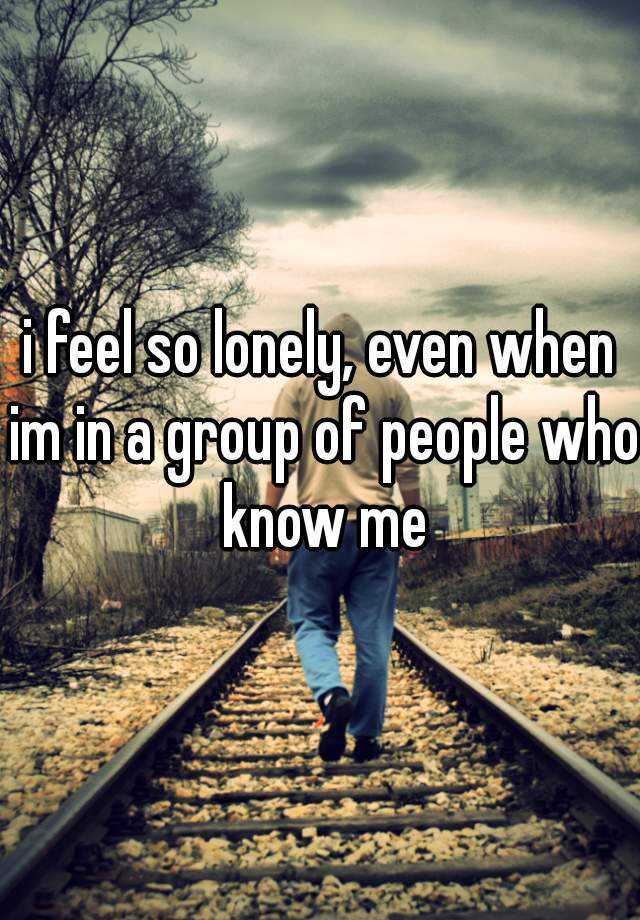 Where does this feeling come from and why are there so many of us lonely?
Where does this feeling come from and why are there so many of us lonely?
Now we can answer these questions. Research by the Red Cross in the UK has shown that one in five Brits feel lonely. Other studies show that chronic loneliness is bad for health and can shorten life expectancy. Fortunately, we are now well aware of this influence.
Most people whose experiences were ignored by their parents as children end up feeling lonely as adults. It seems to many that there is nothing wrong with the fact that adults do not respond to the emotions of the child.
However, this upbringing deprives him of important parts of the foundation on which relationships with others are built.
The consequences of neglecting emotional needs continue to affect adulthood, creating feelings of alienation and other problems.
Reasons why you feel lonely:
1. Your family did not talk heart to heart. It happens that relatives are very good at discussing plans for the future and practical issues, but if someone is sad and hurt, family members seem to scatter. Yes, it's hard to talk about painful experiences. This needs to be learned.
Yes, it's hard to talk about painful experiences. This needs to be learned.
And if it was not customary in your family to discuss feelings seriously, you may simply not be able to do this. And because this skill is essential for building meaningful relationships (both friendships and loves), you find it difficult to connect with others, and as a result, you suffer from loneliness.
2. Your parents criticized your feelings, and you began to shut yourself off from the experience in order to survive. As a child, you adapted to the conditions of life in the family, learning to suppress emotions so as not to burden your parents with them. But feelings are a kind of glue that binds people and allows them to build meaningful relationships. Without them, it is difficult to build those deep and lasting emotional bonds that everyone needs.
3. If your parents didn't see your feelings, they seemed to send a signal every day: "No one needs your feelings. " Since feelings are the deepest and most natural manifestation of ourselves, we hear this message in a different way: “No one needs (needs) you yourself.”
" Since feelings are the deepest and most natural manifestation of ourselves, we hear this message in a different way: “No one needs (needs) you yourself.”
Adults whose feelings were neglected in childhood feel, deep down, that they are less important than others. They sacrifice feelings, needs, and needs for the benefit of those around them. If you consider yourself worse than others, you seem to live in a separate world.
4. Another message your subconscious was receiving: "If something is wrong with your feelings, then so is you." A person who grew up in a family where his feelings were not considered, from childhood feels deeply flawed. Because of this, he is afraid to open up to others, because he is afraid that they will see his insignificance.
Therefore, he maintains a "safe" relationship, but they do not bring satisfaction
5. You tried all the time to ask your parents for emotional help, which is completely natural, but did not receive it. Now, as an adult, you are afraid to seek emotional support from others. You are afraid to experience disappointment or rejection, so you rely only on yourself. Your motto is "I can do it myself." But being afraid to ask for help, you isolate yourself from others and, again, feel lonely.
Now, as an adult, you are afraid to seek emotional support from others. You are afraid to experience disappointment or rejection, so you rely only on yourself. Your motto is "I can do it myself." But being afraid to ask for help, you isolate yourself from others and, again, feel lonely.
6. You find it difficult to explain to loved ones that your emotional needs were neglected as a child. Because of this, it may seem to you that only you have suffered from such problems and no one can understand you.
But you are not alone. In fact, countless people are experiencing the same thing. Most of them seem to be healthy, resilient people. You meet them in the store, in the office, even at the festive table.
It is necessary to learn to take care of your emotions. After all, then you yourself will be able to give yourself that love and affection that was not enough in childhood. Once you decide to take this path, there will be no going back. Life will become richer, relationships will begin to bring joy, and your suffering from loneliness will end!
Life will become richer, relationships will begin to bring joy, and your suffering from loneliness will end!
Text: Nikolai Protsenko Photo Source: Getty Images
New on the site
“Anxiety for my mother's life and guilt before her do not let me live”
Are OnlyFans sexual perverts or not?
Life after 30: new rules for dating
How to know if a work colleague likes you
On the verge of a foul: why people like movies and TV shows about forbidden relationships
"I live in the animated series Gravity Falls"
14 simple and quick ways to relieve stress
How to learn time management from your child
What to do if you feel lonely: 10 valuable tips
The coronavirus pandemic has awakened a previously known but invisible epidemic of loneliness in the world. But this is serious - people deprived of regular contact can become victims of serious diseases. In the body of socially isolated people, inflammatory reactions intensify: the body also reacts to stress, injuries, infections, and other threats to life and health. Healthline experts shared valuable tips on what to do if you feel lonely.
Healthline experts shared valuable tips on what to do if you feel lonely.
Rethink everything
Feelings of loneliness are easier to deal with if you look at it in a different light.
Many were left alone due to quarantine restrictions, someone was simply left unsatisfied in social interaction and human relationships.
People may have different needs in interacting with other people. For example, if you feel lonely knowing that you have so many close friends, that's okay. There is also nothing wrong with the fact that you are quite comfortable spending most of your time alone.
Simply put, you don't need to "load" yourself with thoughts like "why do I feel lonely", but look at it all differently. Time alone with yourself is also important. Loneliness creates opportunities for self-discovery, creative thinking and self-reflection.
Fill your home with sound
If you feel like you're being crushed by empty space at home, the force of the sound can push it away.
Music can cheer you up and motivate you, while audiobooks can distract you and become a "temporary escape" from reality.
Podcasts and talk radio are both informative and entertaining, and their conversational atmosphere can also create a sense of connection.
A favorite TV show or movie can comfortingly break the silence, even if you don't sit down and watch it in its entirety.
Open windows will help you feel more connected to the world at large, especially if you can hear birdsong and street noise clearly.
Stay in touch
Sanofi
In the 21st century, you can always keep in touch with a person, even if you don't see them in person.
Many relationships (romantic, friendly and related) can be broken because of a long silence. No one says that you need to call a person every day or text him every five minutes, but at least the occasional connection with loved ones will let you know that you are not alone.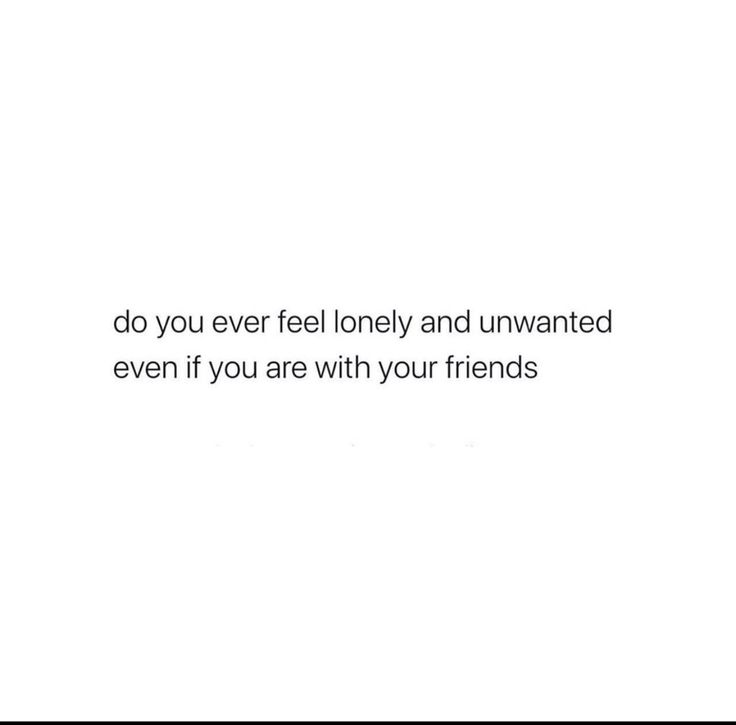
Even a ten-minute phone call can help alleviate loneliness.
Get the most out of your interactions with people
Just spending time with other people doesn't always get rid of loneliness, because the quality of your interaction matters more.
Experts recommend doing the following to improve the quality of your conversation:
- Share your emotions and personal experiences.
- Ask questions and listen carefully to what your loved ones have to say.
- Talk about important things - work, creative projects, mutual interests.
This can help focus your conversations on things that bring you both joy, instead of focusing entirely on negativity or bad news.
Go outside more often
Freepik
A change of scenery can distract you and help ease the pain of loneliness.
Of course, quarantine restrictions do not allow you to fully enjoy all the delights of your usual social life, but a simple walk in good weather will help you. Time in nature eases emotional distress and improves overall well-being.
Time in nature eases emotional distress and improves overall well-being.
A good "discharge" of accumulated emotions can be physical exercises with a friend in nature - this way you can combine business with pleasure.
Also, according to research, it will be useful to listen to simple birdsong - it has a positive effect on well-being.
If thoughts of loneliness often torment you at night, walking will solve the problem, as they are very tiring and help you sleep well.
Talk about your feelings. There's nothing wrong with that
Emotions tend to build up and intensify when they go unnoticed, so expressing your feelings out loud can really help you.
By speaking out about your problems, you can get much-needed emotional support. Talking about difficult or unsaid topics can also be akin to lifting a weight off your shoulders. Just try.
If sharing painful and unwanted emotions with others is difficult, keeping a diary can be an alternative.
Unleash your creative side
A disadvantage can always be turned into an advantage - who knows, maybe solitude will reveal a talent in you that you previously did not suspect?
Creative activities (music, art) help people overcome isolation and feelings of loneliness. They also induce a sense of satisfaction.
Artistic effort helps to express emotions - this is especially useful when you find it difficult to express them out loud.
Freepik
The main thing in the search for a creative personality within oneself will be the search for a suitable channel. A person who does what he loves and goes headlong "into the zone" never suffers from loneliness.
Experts note that you can distract yourself not only with creativity - do what you like. It could be yoga, cooking or playing video games.
Researchers from the University of Oxford found that games do not cause emotional addiction in players, but on the contrary ㅡ can improve your mental health and overall well-being.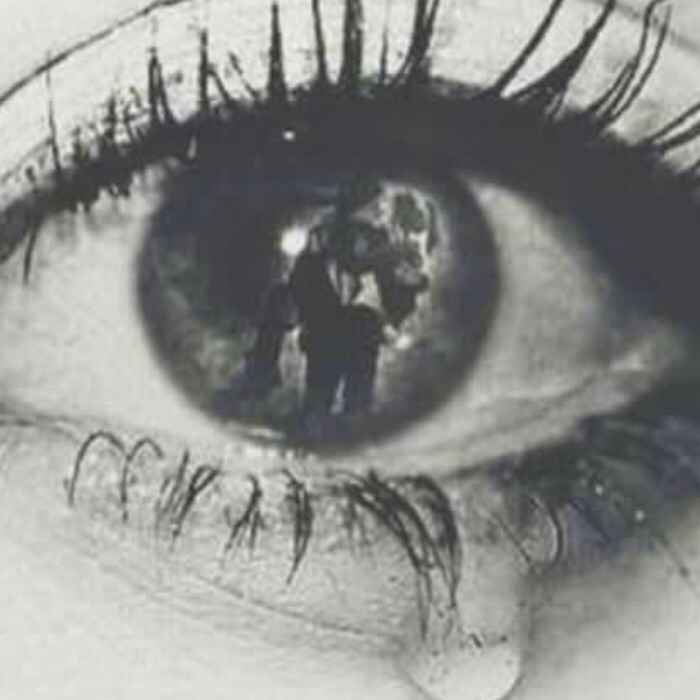
Take a break from social media
While social media often seems like an attractive way to keep in touch with loved ones, sometimes it can only increase feelings of loneliness.
A happy, carefree post from a loved one can give the impression that they don't miss you as much as you do. When you are alone, seeing others having a good time can be frustrating.
Of course, social media never shows the full picture, so you can't find out how your loved ones feel without asking them.
In short, it never hurts to close these apps and instead make a quick call or text message to your loved one.
Get a pet
depositphotos
According to scientists, a pet has a great effect on a person's mental health.
The presence of another living creature can comfort you, and their antics can lift your spirits and relieve stress, as thousands of pet videos on the Internet confirm.
You don't have to limit yourself when choosing a pet.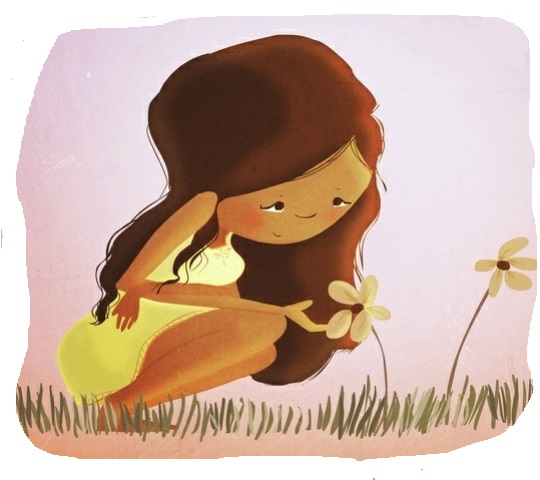 Most importantly, be sure to find out what kind of care your potential pet will need before bringing them home.
Most importantly, be sure to find out what kind of care your potential pet will need before bringing them home.
Remind yourself that this is not forever
As overwhelming as it may be, loneliness will not last forever. Recognizing this fact can sometimes bring some relief.
Over time, coronavirus vaccines will become widely available and schools will reopen to in-person classes. You will reconnect with friends and loved ones and meet new people (and potential partners) again.
The loneliness that has nothing to do with the pandemic will also pass. It can take a little time and effort sometimes, but you never know when you'll meet your best friend or start a new relationship.
Specialists noted that prolonged loneliness can drain you emotionally, making life gloomy and meaningless. It can also lead to physical symptoms, including pain, sleep problems, and a weakened immune response. In addition, loneliness is one of the main causes of suicides around the world, so the above tips are especially valuable.

